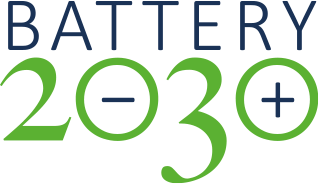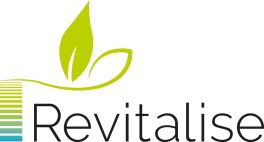REcycling of low Value components using high purity pre-treatment, dIrecT recycling And green hydrometallurgical approaches for recycling of Lithium-Ion and Sodium-ion batteriEs
The REVITALISE project aims to deliver a holistic solution for green, low-cost, and environmentally friendly recycling processes for end-of-life batteries. The nine project partners target a comprehensive range of battery materials, including lithium-ion and sodium-ion batteries, which represent 85% of battery waste streams up to 2025 and beyond.
REVITALISE is set to deliver a holistic solution for green, low-cost, and environmentally friendly recycling processes, targeting a comprehensive range of battery materials. The project’s overarching goal is to achieve recycling rates of 91% or more for waste processed from post-production scrap and end-of-life battery black mass.
This will be possible through innovative pre-treatment technologies ensuring significantly high levels of material stream purity. This innovation will enable commercially viable recycling of low-value parts, including the direct recycling of 40% of cathode and anode active parts. Furthermore, a smart-reformation approach for reclaimed active materials and hydrometallurgical recycling as well as water remediation techniques that the partners bring to the table will ensure high recycling rates are reached. Finally, the recycled components will be thoroughly assessed for closed-loop battery and other secondary applications.
The REVITALISE consortium comprises nine European partners, contributing specialized expertise in various aspects of battery recycling, from pre-treatment and direct recycling to green hydrometallurgy and water remediation.
Project management and coordination:
Norwegian University of Science and Technology (NTNU) will coordinate the Revitalise project, will manage the project consortium and will be responsible for efficient communication between project partners as well as with the EC. NTNU will develop new hydrometallurgy processes for production of lithium salts and battery precursors with graphite, fluoride, and phosphorous recovery.
Recycling technologies development:
Watercycle Technologies Ltd will be responsible for applying its groundbreaking technology for a hydrometallurgy approach to recovering lithium, mixed salt precursors and other valuable materials, from spent lithium-ion batteries. Watercycle Technologies’ patented advanced membranes and filtration systems will be used to treat black mass to create a lithium-rich solution which will then be crystalized into battery-grade lithium carbonate. Watercycle enables direct lithium recycling for concentrations as low as 0.6mg/L.
REELEMENTS GmbH will utilize their technology, the shock wave fragmentation process, to efficiently separate material streams for battery component separation and raw material recovery.
University of Münster – MEET will leverage their ultrasonication process for binder, coating, active material, and electrolyte separation. MEET will also provide innovative black mass particle analysis for improved characterization.
University of Birmingham – School of Metallurgy and Materials will focus on the separation of lithium-ion batteries black mass, optimizing and applying to different battery chemistries. They will also focus on the direct recycling processes for cathodic and anodic parts and their improvement making them more cost-effective.
Fundació Eurecat will develop an innovative sodium-ion cells recycling process for the recovery of materials. Eurecat will also perform the sustainability assessment including LCA and techno-economic analysis as well as the Process Hazard Analysis (PHA) of new technologies.
Industrial partners:
Verkor SAS will supply battery manufacturing scrap as well as be responsible for the evaluation of end-upcycled materials for new battery manufacturing and small-scale technical validation.
Hydro Batteries (Hydro Energi AS), part of Norsk Hydro ASA, will supply black mass as well as work on the valorization of output fractions including critical elements and low value materials. Hydro will also lead the commercial aspects of the route to market and focus on scalability aspects.
Innovation consulting:
Iconiq Innovation SL will undertake dissemination and communication activities, lead the Tech-Futures Analysis on behalf of the project partners. Iconiq will also help build the exploitation strategy for the project results as well as look into future funding opportunities.
REVITALISE is set to redefine the future of battery recycling, emphasizing sustainability, cost-effectiveness, and minimal environmental impact. Regular updates on the project’s progress will be shared with the public, showcasing the transformative impact of this collaborative initiative.
This project has been funded through EU’s Horizon Europe programme (Grant agreement ID: 101137585), the call topic HORIZON-CL5-2023-D2-01-02: New processes for upcoming recycling feeds (Batt4EU Partnership). Additional funding has been provided by Innovate UK though their Horizon Europe Guarantee Fund.
Connect with Revitalise:
Project Coordinator Sulalit Bandyopadhyay, NTNU (Norweigan U of Tech & Sciences) Norway
Contact sulalit.bandyopadhyay@ntnu.no

